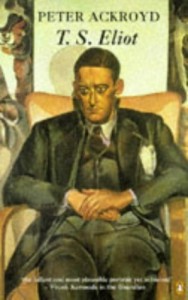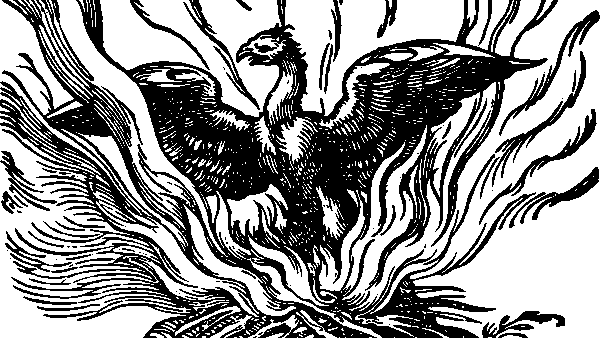 I hardly ever read poetry, but for some reason T.S. Eliot’s poetry speaks to me. Perhaps it’s because, like Eliot, I used to work at a bank in the City of London, and the feeling of his poems is the exact feeling I had as a ‘Hollow Man’ looking at the masses of other Hollow Men crossing London Bridge to the Waste Land of the City. “I had not thought death had undone so many” – lines like that just express so much for me.
I hardly ever read poetry, but for some reason T.S. Eliot’s poetry speaks to me. Perhaps it’s because, like Eliot, I used to work at a bank in the City of London, and the feeling of his poems is the exact feeling I had as a ‘Hollow Man’ looking at the masses of other Hollow Men crossing London Bridge to the Waste Land of the City. “I had not thought death had undone so many” – lines like that just express so much for me.
So I was happy to be able to borrow this biography of T.S. Eliot from my neighbours. It was quite a depressing read, but fascinating. Eliot was apparently very cold and detached from his emotions, sexually repressed, withholding of emotion, distrustful of the passionate side of him, and stuck for much of his life in a disastrous marriage with Vivien, who was perpetually ill and mentally unstable.
His writing depended a lot on other literature, feeding on others’ work, adapting it and using it in hiw own. “His was an imagination which went to literature for that which life could not give – a sense of order and significance, and the possibility of dramatic intensity.”
I was struck by how much of a record we have of people’s lives and thoughts in those days, through letters and other paper archives – there’s even a record of what books Eliot borrowed from his local library in 1917. Today, how much will there be for future historians to draw on? Nobody writes letters any more. Emails and blogs and websites could theoretically be retained forever, but are in practice deleted frequently. Not to mention tweets, texts, instant messages, etc.
I was also interested in how small and accessible ‘literary’ society seemed in those days. Even before Eliot was famous, he was mixing quite easily with the likes of Ezra Pound (who mentored him and edited the Waste Land), the Woolfs, James Joyce, etc etc. Eliot came from a privileged background so clearly that was important, but I was interested in how easily he seemed to get ‘in’, and how everybody seemed to know everybody.
His poetry was written sporadically, partly due to other commitments – his work at the bank and then as a publisher at Faber & Faber, his own poor health and that of his wife, their eventual breakup (Eliot split from her in a very cowardly way, going to America for a year and then just avoiding her when he got back to London and getting his lawyer to write to her and explain everything). For some years, there’s almost nothing in the biography apart from a catalogue of worries and difficulties and ailments.
His conversion to Anglo-Catholicism surprised many, given his scepticism and ironic distance from any idea. But his sister Ada thought that it was a way for him to withdraw from the world even further, seeing it as unreal and merely “acting” in it while maintaining a separate, inner world of mysticism. He was also seeking some kind of order and tradition to cling to. He became increasingly preoccupied with the absurdity of most activities and the deceitfulness of human affections. Even his writing didn’t seem to give him much pleasure – in his letters there are repeated references to poetry as something dark and viscous that clogs him up and has to be evacuated.
At the end of his life, however, he did seem to find happiness. He married his secretary Valerie Fletcher in 1957 and lived a simple, domestic life of semi-retirement with her until his death in 1965. After he died, Valerie said, “He felt he had paid too high a price to be a poet, that he had suffered too much.”


